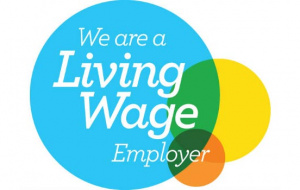Celebrating Living Wage
 Univ is delighted to announce that it is now an accredited Living Wage employer – leading the vanguard, in the company of a select number of other Oxford colleges, in ensuring that all of its employees are more fairly rewarded for their work.
Univ is delighted to announce that it is now an accredited Living Wage employer – leading the vanguard, in the company of a select number of other Oxford colleges, in ensuring that all of its employees are more fairly rewarded for their work.
The Living Wage commitment will see everyone working at Univ, regardless of whether they are permanent employees or third-party contractors; receive a minimum hourly wage of £8.25 – significantly higher than the national minimum wage of £6.70 and the new minimum wage premium for over 25s of £7.20 per hour.
The Living Wage is an hourly rate set independently and updated annually; it is calculated according to the basic cost of living using the “Minimum Income Standard” for the UK. Decisions about what to include in this standard are set by the public; it is a social consensus about what people need to make ends meet.
Living Wage Foundation Director, Katherine Chapman said: “We are delighted to welcome Univ to the Living Wage movement as an accredited employer. The best employers are voluntarily signing up to pay the Living Wage now. The Living Wage is a robust calculation that reflects the real cost of living, rewarding a hard day’s work with a fair day’s pay.”
The initial impetus to become fully accredited came from Univ’s JCR and, after due process and consideration, the Governing Body voted overwhelmingly to back College’s commitment to this important and socially just scheme.
Univ’s Domestic Bursar, Angela Unsworth, comments: “This decision allows us to align ourselves with other likeminded organisations and to send a clear message to the wider University that the ethos of the Living Wage is one that we should all stand by. It is right and proper that we most fully support all of our loyal employees in this way.”
Published: 20 July 2016
Explore Univ on social media
